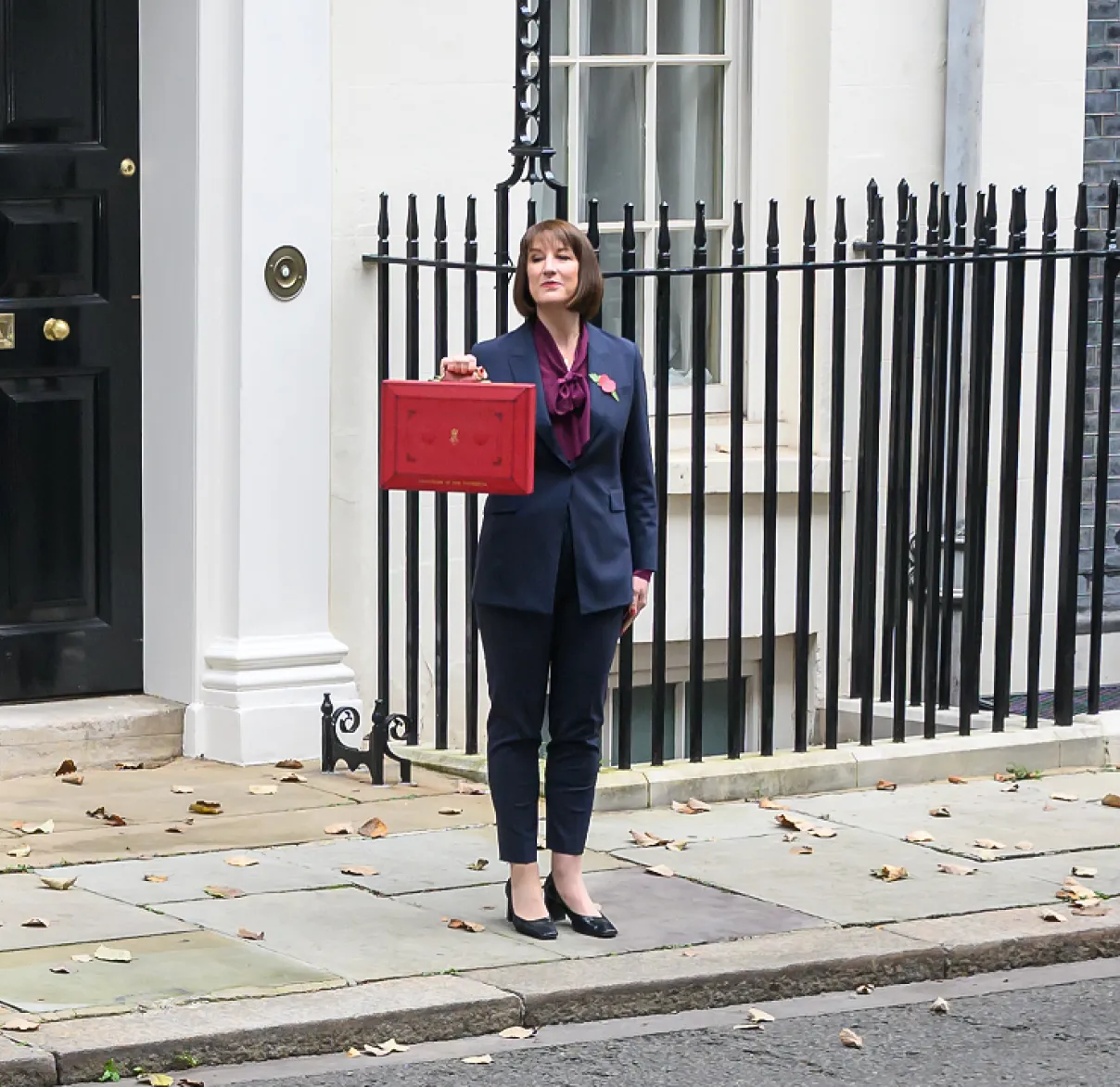Autumn budget: Labour hits reset
Big changes to taxes, spending and the fiscal rules. Rachel Reeves used her long-awaited first Budget to hit reset, with big increases in tax and spending alongside a major change to the fiscal rules. While there are significant implications for individuals’ financial planning as capital gains and inheritance tax change, this article focuses on the potential effects on the UK economy and financial markets.

Article last updated 25 November 2025.
Rachel Reeves used her long-awaited first Budget to hit reset, with big increases in tax and spending alongside a major change to the fiscal rules. While there are significant implications for individuals’ financial planning as capital gains and inheritance tax change, this article focuses on the potential effects on the UK economy and financial markets.
The UK government bond (gilt) market initially reacted poorly to the Chancellor’s intention to borrow an extra £32 billion annually (1% of GDP) over the next five years, since it represents a substantial loosening of fiscal policy. Combined with the announcement of a larger-than-expected increase in the minimum wage, that’s increased inflation expectations and the government’s cost of borrowing. But the move should be seen in context. It’s not in the same league as the extreme volatility in the market around the ‘mini budget’ debacle under former Prime Minister Liz Truss (figure 1), and there’s far more to reassure bond investors in the Chancellor’s plans this time around.
Making room for growth
The additional borrowing, facilitated by a change in the debt measure used in Reeves’ key fiscal rule, will primarily be used to fund investment in the UK’s creaking public services. There’s now a strong consensus that investment was cut by too much during the 2010s, ultimately making the public finances less, not more, sustainable. Investment in the UK more generally has long lagged the rates in other major developed countries. That’s why bodies like the IMF and OECD have been calling for an increase in public investment. The change to boost investment is therefore in step with the international consensus, in stark contrast to the Truss episode. The Chancellor highlighted the health service as an area for investment, which makes sense given the evidence that record waiting lists are taking a toll on the economy. The number of people out of the labour force due to long-term ill health is about 750,000 higher than before the pandemic, for example.
Importantly, the Chancellor has also emphasised that there will be independent guardrails on the public finances, and particularly on investment spending, as she changes her fiscal rules. She has embraced the scrutiny of the Office for Budgetary Responsibility and established several new measures to ensure value for money in government spending – again in contrast to the Truss experience.
Otherwise, the big tax increases announced by the Chancellor to fund higher day-to-day spending represent fiscal reality biting, after a period in which neither major political party has been straightforward with the electorate about the public finances.
The cuts to National Insurance in the last Budget and Autumn Statement were feasible within the fiscal rules at the time only because of planned restraint in public spending and investment. Such restraint would have amounted to ‘austerity 2.0’ had it been implemented. Given the state of public services, it would have been near-impossible for any government to deliver on these spending plans. Indeed, the independent Institute for Fiscal Studies dubbed them ”fiscal fiction”. Yet neither the Conservatives nor Labour were willing to address the issue ahead of the election, preferring to wait until afterwards to engage in a war of words over the so-called ”black hole”.
In that context, it’s no surprise that taxes have increased, with the Chancellor trying to raise about £40bn. The biggest revenue raiser, the decision to increases employers’ National Insurance rate, is just a reversal, indirectly, of previous Chancellor Jeremy Hunt’s cut to the employees’ rate at the last Budget. Higher taxes are the reality of funding the level of public services which voters expect in the context of the UK’s aging population and slow growth rate.
The key challenge for the Chancellor is to tax in a way which does as little damage as possible to the UK’s attractiveness for private investment and therefore its long-term growth prospects. In that context, the announcements of higher rates of Capital Gains Tax and changes to Business Asset Disposal Relief (relief from taxes on capital gains for individual business owners who are planning their retirement, or a sale or exit from their business) were disappointing. The good news is that they weren’t as bad as the much-larger increases that had reportedly been considered.
A step in the right direction
For businesses, it’s positive that the government has provided certainty by capping the corporate tax rate, while retaining policies like the ‘full expensing’ of certain business investment, the annual investment allowance and schemes to encourage research and development and patent creation. But there were a couple of things that we would also have liked to see to complement the commitment to public investment: new measures to encourage further private investment – such as extending the full expensing in the first year of investments to include training and intangible assets; and expedited reform of business rates to encourage the upgrading of premises. More generally, we’re still waiting for the full details of the government’s broader strategy to catalyse investment, including its intentions for planning reform and the specifics of its new industrial strategy.
The government has shown that it at least recognises the importance of reviving investment. But the devil will be in the detail when it comes to its strategy.
